40 virus and antivirus difference
The main difference between Firewall and Antivirus is that a Firewall serves as a barrier for the incoming traffic to the system. On the other hand, Antivirus protects against internal attacks like malicious files etc. Both Firewall and Antivirus functions in distinct approaches like Firewall emphasizes inspection of the data or information ... In contrast, paid anti-virus solutions offer more comprehensive protection for your computer. The specific benefits of different solutions vary, but a quality paid anti-virus solution should prevent malicious attacks. Think of paid anti-virus software as being a proactive, rather than purely reactive, way to protect your computer.
Antivirus software protects the user's device. This software monitors the computer and scans any new files for potential threats. A VPN, on the other hand, is a system that primarily focuses on protecting data in transit. It encrypts the information that comes and goes from your device.
Virus and antivirus difference
Knowing the differences between viruses and other types of malware is helpful when it comes to prevention as well as removal. A computer virus is designed to copy itself and spread to other devices as widely as possible, just as a biological virus infects its host, self-replicates, and spreads to new hosts. An old but still prominent type of malware, macro viruses, remain popular with hackers. Polymorphic viruses modify their own code. The virus replicates and encrypts itself, changing its code just enough to evade detection by antivirus programs. Malware encompasses all types of malicious software, including viruses, and may have a variety of goals. Malware protection and more. Most antivirus products offer protection from malware, ransomware, spyware, trojans, viruses, phishing attacks, and other online threats. It's smart to understand what differentiates average antivirus protection software from outstanding protection. Look for awards, reviews, and the technology behind the service.
Virus and antivirus difference. Let's start with the differences between "viruses" and "malware." Viruses are a specific type of malware (designed to replicate and spread), while malware is a broad term used to describe all ... Best answer: Both antivirus and internet security programs protect your computer from malware, especially files attempting to download from online, but differ in terms of features. Internet... Difference between Firewall and Anti-virus Computers Safe & Security Hardware Both Firewall and Anti-virus are the two measures to protect the system from virus and other other trojans which can be primarily can get introduced or entered through network or external source when connected with system.External source may include hard disk,pen ... 1. Antivirus : Antivirus is an application software which is designed and developed to protect our computers from malware, viruses, computer worms, spyware, rootkits, keyloggers etc. Antivirus softwares function to scan, detect and also to remove software viruses from our computers.
Distinguish between Virus and Antivirus | KnowledgeBoat Difference Between Malware and Virus. Malware: Virus. Definition: Malware is a software which is designed to get unauthorised access of a computer system, generally for a third party benefit. Definition: A virus is a code which attaches itself to various files and programs which get infected in a manner that they can disrupt and corrupt a device. Types of Malware include: Antivirus and antimalware were both created to detect and protect against malicious software. While the term antivirus denotes that it only protects against computer viruses, its features often protect against the many common forms of malware today. Antimalware goes one step further and focuses on broader, more advanced, software threats. With a two-year commitment, you must pay McAfee $59.99 upfront, compared to $249.47 for the same two years of Norton 360 with LifeLock Select - $99.48 for the first year and $149.99 for the ...
A good antivirus program protects your device from malware injections like viruses, Trojans, ransomware, and computer worms. VPNs effectively protect your data from prying eyes. Antivirus software, on the other hand, protects your file system from getting infected with viruses or harmful scripts that you might have downloaded off the web. Select Virus & threat protection. Under Virus & threat protection settings, choose Manage settings. You'll see the name of your antivirus/antimalware solution on the settings page. Use PowerShell to check status of Microsoft Defender Antivirus. Select the Start menu, and begin typing PowerShell. Then open Windows PowerShell in the results. For example, a single threat might propagate virus-style, steal your personal information like spyware, and use rootkit technology to hide from your antivirus. A scareware program is a kind of ... An antivirus is more of computer software, which is a collection of programs that provide instructions to the computer telling it on what to do or how to do it. A virus can benefit the spreader of the virus or the programmer who used it while an antivirus is beneficial to the people who got infected by the virus.
Both Internet Security and Antivirus are the techniques that are being used to protect the user from malicious programs by blocking and removing them specifically when user interacts with external resource/s. However Internet Security is the broader term than the Antivirus and also carries some differences which we will discuss below.
Difference between Antivirus and Antimalware. 1. Antivirus : Antivirus is a type of software program tat helps in protecting the computer system from viruses. It detects the viruses in the computer system and destroys them. It basically protects computer system from a specific malware.
One of the main differences between Anti-Virus and Firewall is that anti-virus is only a software application while a firewall can be software or hardware or a combination of both. Individual and standalone computers are normally protected by readily available anti-virus applications from threats from within.
The Difference Between Adware, Spyware and Anti-VirusAdware, spyware and pc virus share a few similarities, 1 of that is that all 3 are important nuisances for pc users. Let us distinguish the 3. Spyware is software that doesn't intentionally damage your PC. The things they do is that they produce pathways wherein somebody else besides the…
A virus is an older type of malware, which was mainly used way back when and is why you're hard-pressed to find a security company that hasn't evolved over recent periods to offer protection...
Antivirus and antispyware programs work pretty much in the same way, the difference being the type of malicious file and pattern the program scans your hard drive (including the system registry) for and detects. Today some antivirus programs include antispyware protection, and vise versa. While dual purpose and all-in-one software has its ...
May 22, 2019 — 1. Virus is the bug or program that damages the computer and meant for destruction while antivirus is solution to it. · 2. Virus is unwanted and ...2 answers · 40 votes: Answer:VirusA virus is a computer program that enters into computer files and disrupts or ...
The name "antivirus" sometimes refers to a more old-fashioned type of program that mainly tackles more traditional forms of malware on your computer or network, such as viruses, trojans and computer worms. Antimalware programs, on the other hand, are capable of dealing with many different types of malware, including adware and spyware.
Early antivirus programs would compare software file signatures against a list of known viruses to see if they matched, and if so, block them. Today, cybersecurity companies like Malwarebytes employ several different methods to detect, block, or remove malware from a device. What's the difference between antivirus and anti-malware?
Antivirus detects or recognizes the virus, and then after detecting the presence of the virus, it works on removing it from the computer system. Antivirus software works as a prophylactic so that it not only eliminates a virus but also prevents any potential virus from infecting your computer in the future.
The term " Email Security " refers to the protection of emails from viruses and malware, while " AntiSpam " refers to the protection from spam, scam and phishing attacks. The term " Web protection " usually includes protection from: infected and malicious URLs, phishing websites, online identity (privacy) protection and online banking protection.
Let's take a look at the consumer version of Defender built into Windows 10 and Windows 11 and how its features compare and differ to most third part anti-virus solutions.
Yes, antivirus stops computer viruses, but it can also stop modern threats like ransomware, adware, and Trojans as well. The more modern term "anti-malware" attempts to bring the terminology up to date with what the technology actually does; i.e., stop malware. People tend to use the two terms interchangeably.
Malware protection and more. Most antivirus products offer protection from malware, ransomware, spyware, trojans, viruses, phishing attacks, and other online threats. It's smart to understand what differentiates average antivirus protection software from outstanding protection. Look for awards, reviews, and the technology behind the service.
An old but still prominent type of malware, macro viruses, remain popular with hackers. Polymorphic viruses modify their own code. The virus replicates and encrypts itself, changing its code just enough to evade detection by antivirus programs. Malware encompasses all types of malicious software, including viruses, and may have a variety of goals.
Knowing the differences between viruses and other types of malware is helpful when it comes to prevention as well as removal. A computer virus is designed to copy itself and spread to other devices as widely as possible, just as a biological virus infects its host, self-replicates, and spreads to new hosts.


![10 Best Antivirus Software [2022]: Windows, Android, iOS & Mac](https://static.safetydetectives.com/wp-content/uploads/2020/06/10-Best-Antivirus-in-2020-Windows-Android-iOS-Mac.jpg)









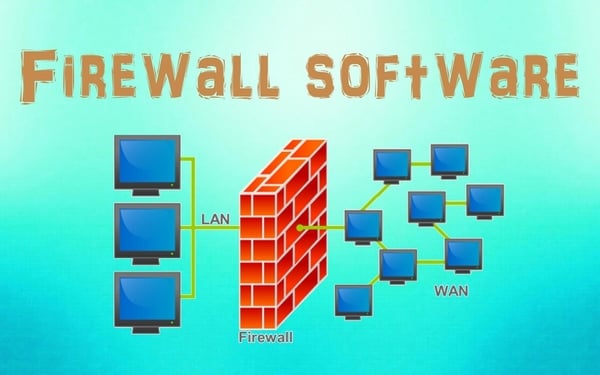






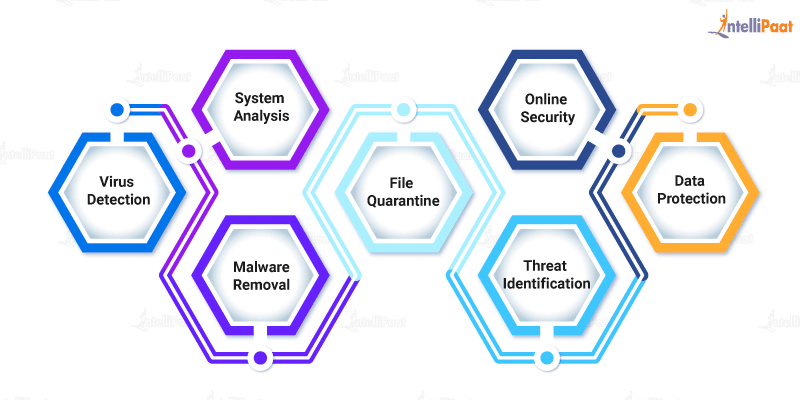
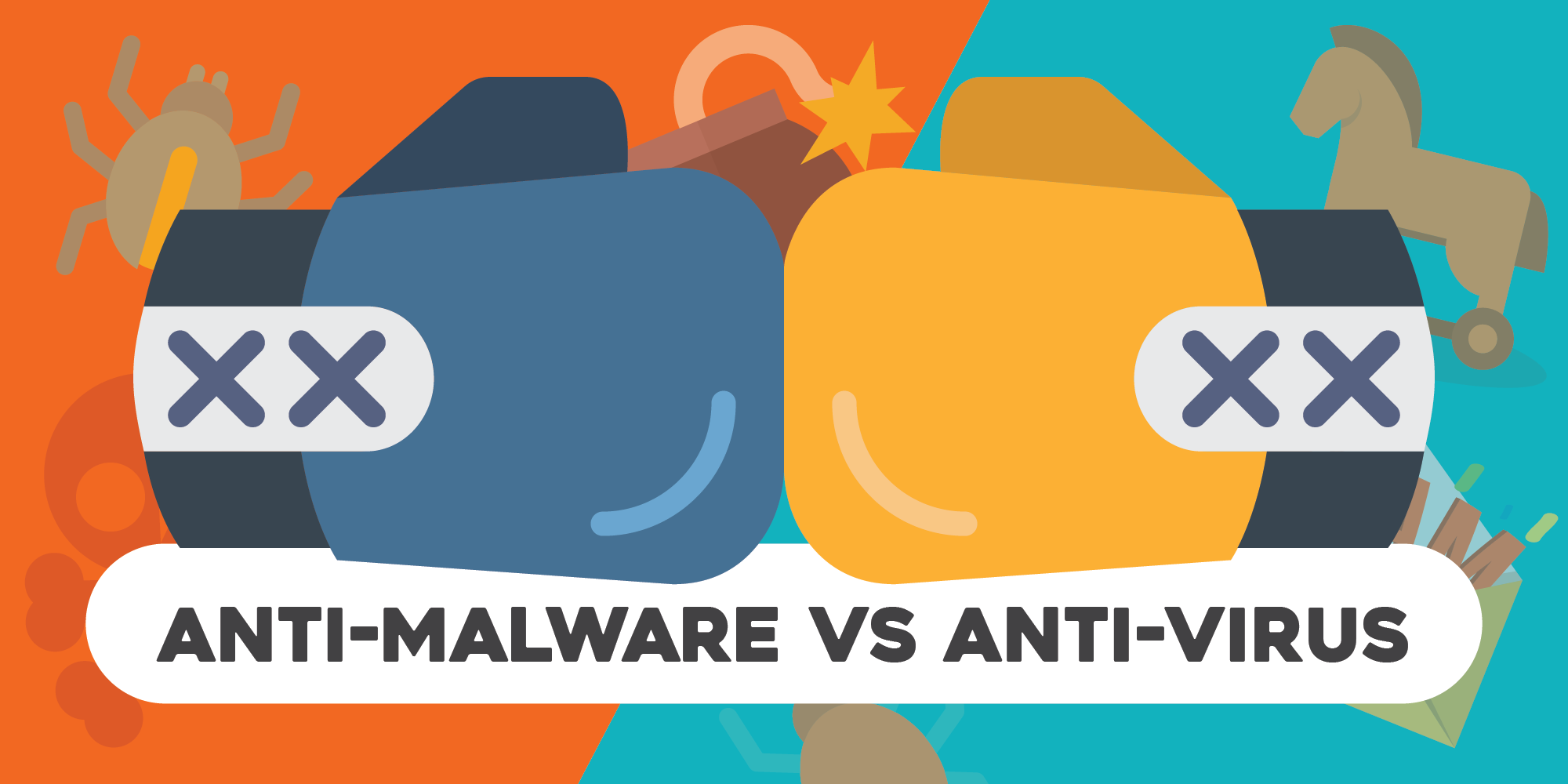







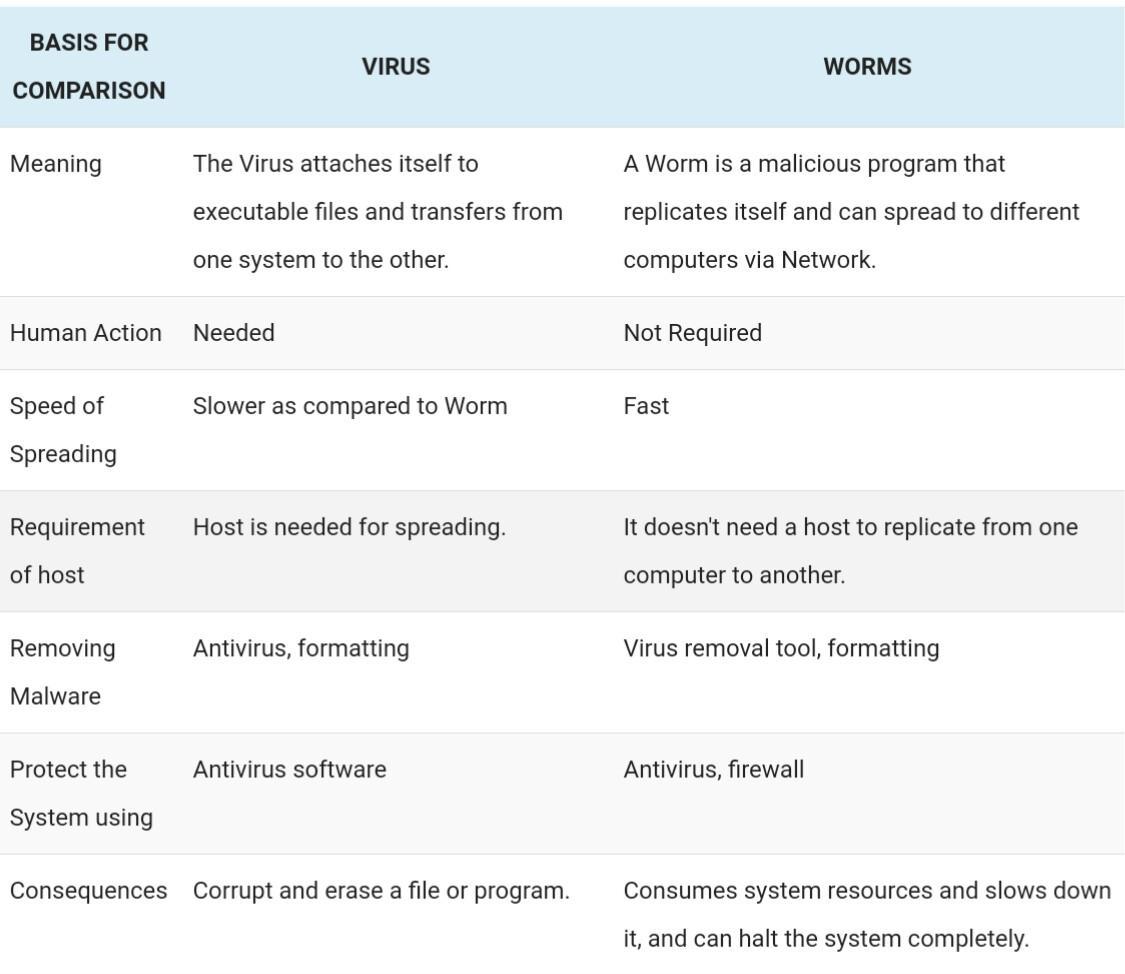
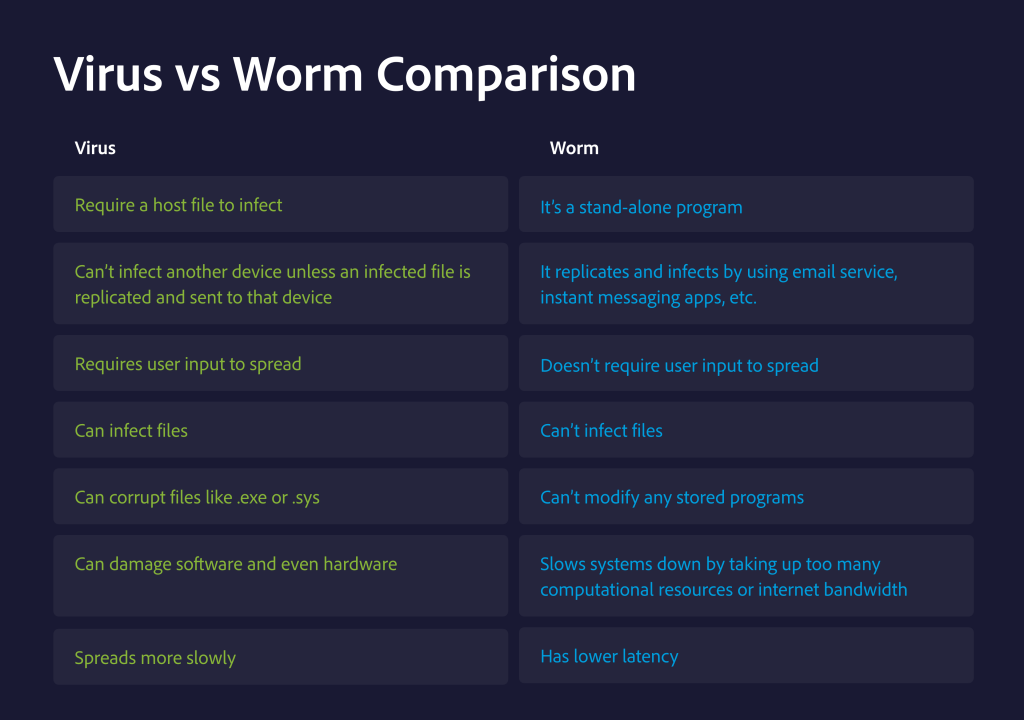
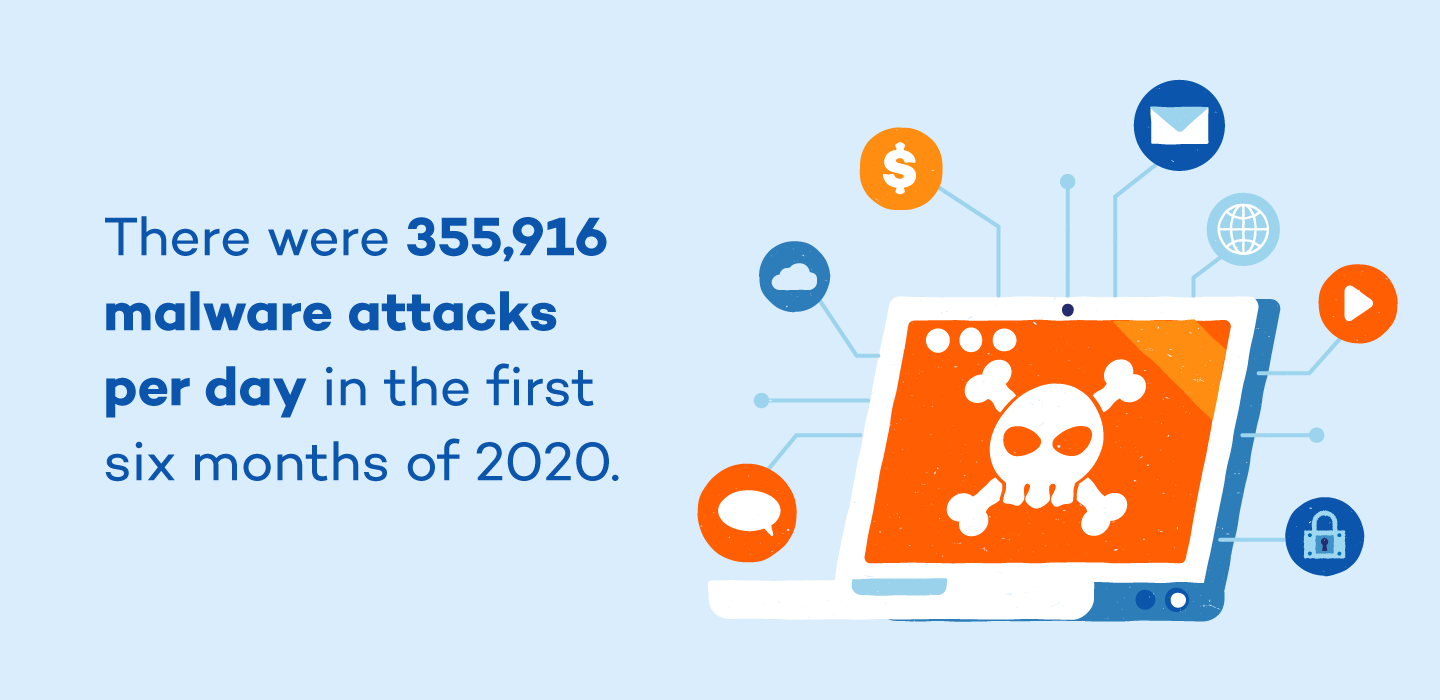


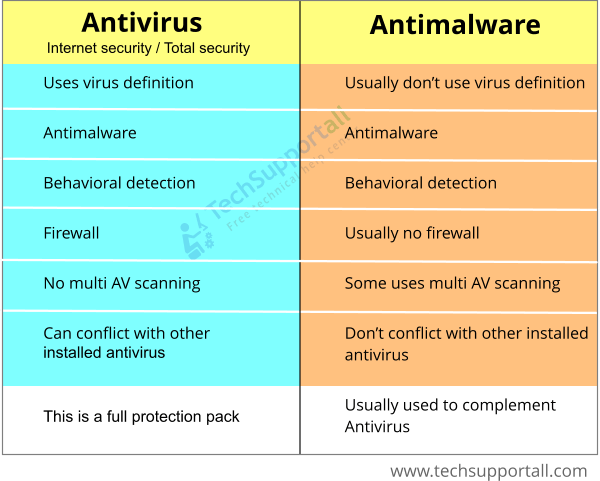

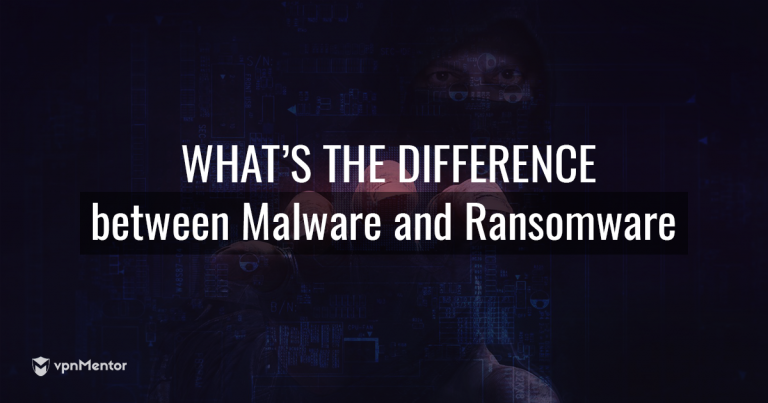
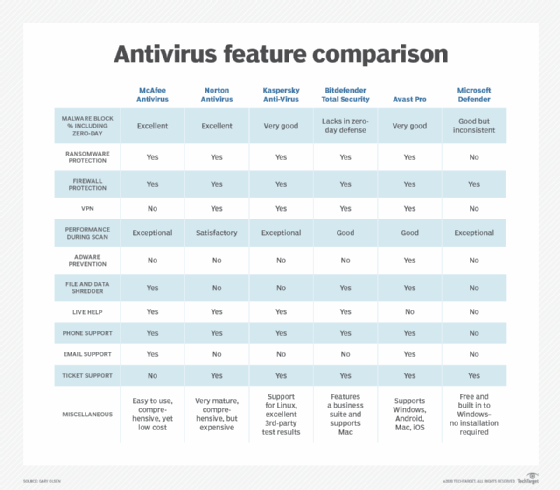
0 Response to "40 virus and antivirus difference"
Post a Comment